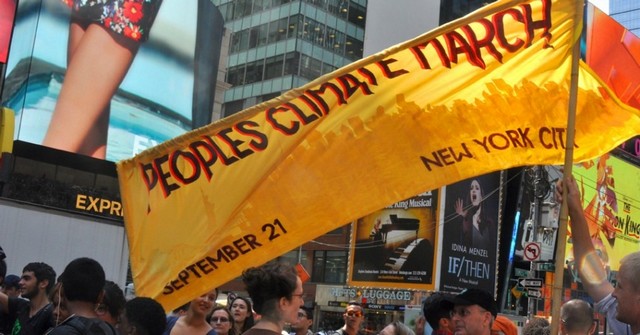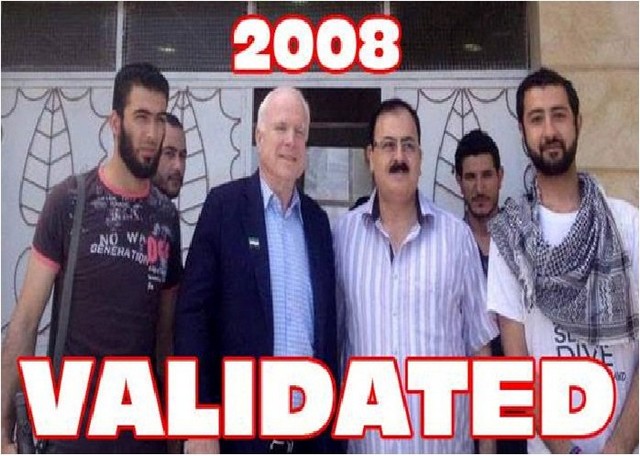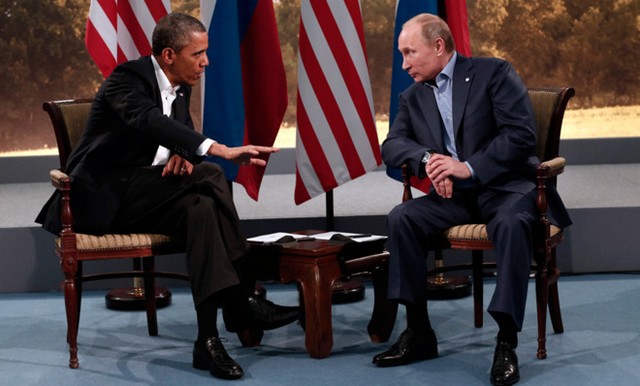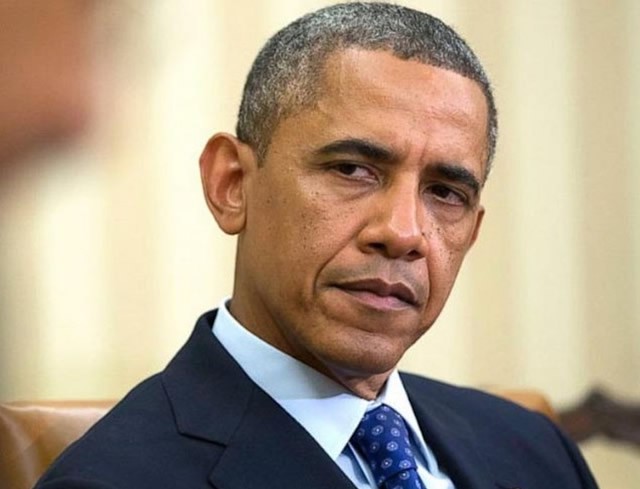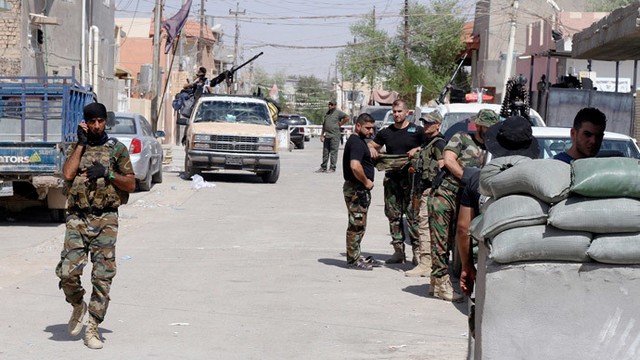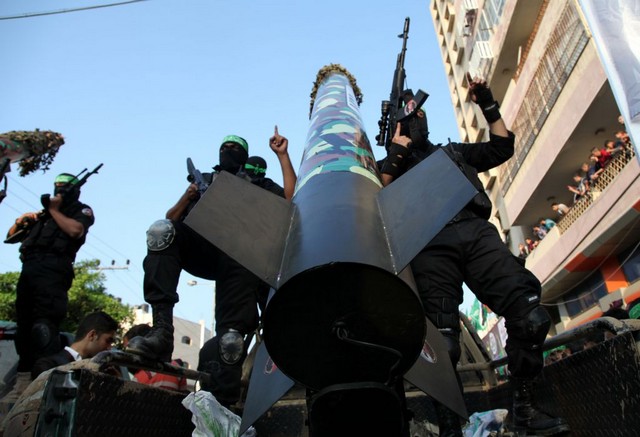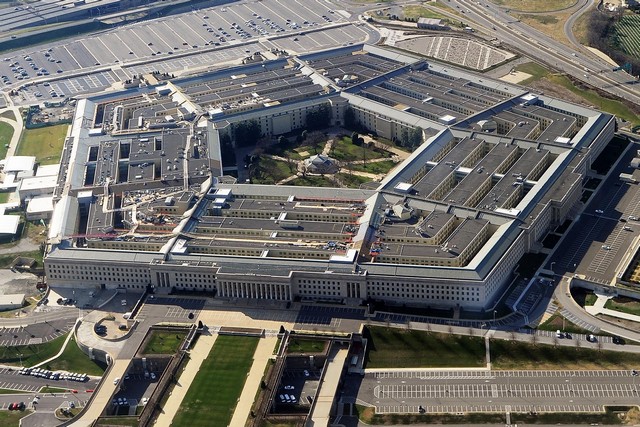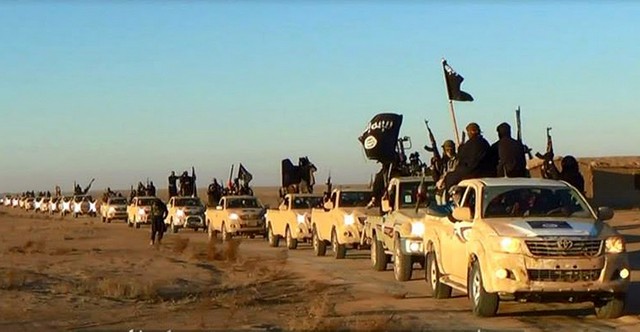By Noam Chomsky
On August 26th, Israel and the Palestinian Authority (PA) both accepted a ceasefire agreement after a 50-day Israeli assault on Gaza that left 2,100 Palestinians dead and vast landscapes of destruction behind. The agreement calls for an end to military action by both Israel and Hamas, as well as an easing of the Israeli siege that has strangled Gaza for many years.
This is, however, just the most recent of a series of ceasefire agreements reached after each of Israel’s periodic escalations of its unremitting assault on Gaza. Throughout this period, the terms of these agreements remain essentially the same. The regular pattern is for Israel, then, to disregard whatever agreement is in place, while Hamas observes it — as Israel has officially recognized — until a sharp increase in Israeli violence elicits a Hamas response, followed by even fiercer brutality. These escalations, which amount to shooting fish in a pond, are called “mowing the lawn” in Israeli parlance. The most recent was more accurately described as “removing the topsoil” by a senior U.S. military officer, appalled by the practices of the self-described “most moral army in the world.”
The first of this series was the Agreement on Movement and Access Between Israel and the Palestinian Authority in November 2005. It called for “a crossing between Gaza and Egypt at Rafah for the export of goods and the transit of people, continuous operation of crossings between Israel and Gaza for the import/export of goods, and the transit of people, reduction of obstacles to movement within the West Bank, bus and truck convoys between the West Bank and Gaza, the building of a seaport in Gaza, [and the] re-opening of the airport in Gaza” that Israeli bombing had demolished.
That agreement was reached shortly after Israel withdrew its settlers and military forces from Gaza. The motive for the disengagement was explained by Dov Weissglass, a confidant of then-Prime Minister Ariel Sharon, who was in charge of negotiating and implementing it. “The significance of the disengagement plan is the freezing of the peace process,” Weissglass informed the Israeli press. “And when you freeze that process, you prevent the establishment of a Palestinian state, and you prevent a discussion on the refugees, the borders, and Jerusalem. Effectively, this whole package called the Palestinian state, with all that it entails, has been removed indefinitely from our agenda. And all this with authority and permission. All with a [U.S.] presidential blessing and the ratification of both houses of Congress.” True enough.
“The disengagement is actually formaldehyde,” Weissglass added. “It supplies the amount of formaldehyde that is necessary so there will not be a political process with the Palestinians.” Israeli hawks also recognized that instead of investing substantial resources in maintaining a few thousand settlers in illegal communities in devastated Gaza, it made more sense to transfer them to illegal subsidized communities in areas of the West Bank that Israel intended to keep.
The disengagement was depicted as a noble effort to pursue peace, but the reality was quite different. Israel never relinquished control of Gaza and is, accordingly, recognized as the occupying power by the United Nations, the U.S., and other states (Israel apart, of course). In their comprehensive history of Israeli settlement in the occupied territories, Israeli scholars Idith Zertal and Akiva Eldar describe what actually happened when that country disengaged: the ruined territory was not released “for even a single day from Israel’s military grip or from the price of the occupation that the inhabitants pay every day.” After the disengagement, “Israel left behind scorched earth, devastated services, and people with neither a present nor a future. The settlements were destroyed in an ungenerous move by an unenlightened occupier, which in fact continues to control the territory and kill and harass its inhabitants by means of its formidable military might.”
Operations Cast Lead and Pillar of Defense
Israel soon had a pretext for violating the November Agreement more severely. In January 2006, the Palestinians committed a serious crime. They voted “the wrong way” in carefully monitored free elections, placing the parliament in the hands of Hamas. Israel and the United States immediately imposed harsh sanctions, telling the world very clearly what they mean by “democracy promotion.” Europe, to its shame, went along as well.
The U.S. and Israel soon began planning a military coup to overthrow the unacceptable elected government, a familiar procedure. When Hamas pre-empted the coup in 2007, the siege of Gaza became far more severe, along with regular Israeli military attacks. Voting the wrong way in a free election was bad enough, but preempting a U.S.-planned military coup proved to be an unpardonable offense.
A new ceasefire agreement was reached in June 2008. It again called for opening the border crossings to “allow the transfer of all goods that were banned and restricted to go into Gaza.” Israel formally agreed to this, but immediately announced that it would not abide by the agreement and open the borders until Hamas released Gilad Shalit, an Israeli soldier held by Hamas.
Israel itself has a long history of kidnapping civilians in Lebanon and on the high seas and holding them for lengthy periods without credible charge, sometimes as hostages. Of course, imprisoning civilians on dubious charges, or none, is a regular practice in the territories Israel controls. But the standard western distinction between people and “unpeople” (in Orwell’s useful phrase) renders all this insignificant.
Israel not only maintained the siege in violation of the June 2008 ceasefire agreement but did so with extreme rigor, even preventing the United Nations Relief and Works Agency, which cares for the huge number of official refugees in Gaza, from replenishing its stocks.
On November 4th, while the media were focused on the U.S. presidential election, Israeli troops entered Gaza and killed half a dozen Hamas militants. That elicited a Hamas missile response and an exchange of fire. (All the deaths were Palestinian.) In late December, Hamas offered to renew the ceasefire. Israel considered the offer, but rejected it, preferring instead to launch Operation Cast Lead, a three-week incursion of the full power of the Israeli military into the Gaza strip, resulting in shocking atrocities well documented by international and Israeli human rights organizations.
On January 8, 2009, while Cast Lead was in full fury, the U.N. Security Council passed a unanimous resolution (with the U.S. abstaining) calling for “an immediate ceasefire leading to a full Israeli withdrawal, unimpeded provision through Gaza of food, fuel, and medical treatment, and intensified international arrangements to prevent arms and ammunition smuggling.”
A new ceasefire agreement was indeed reached, but the terms, similar to the previous ones, were again never observed and broke down completely with the next major mowing-the-lawn episode in November 2012, Operation Pillar of Defense. What happened in the interim can be illustrated by the casualty figures from January 2012 to the launching of that operation: one Israeli was killed by fire from Gaza while 78 Palestinians were killed by Israeli fire.
The first act of Operation Pillar of Defense was the murder of Ahmed Jabari, a high official of the military wing of Hamas. Aluf Benn, editor-in-chief of Israel’s leading newspaper Haaretz, described Jabari as Israel’s “subcontractor” in Gaza, who enforced relative quiet there for more than five years. As always, there was a pretext for the assassination, but the likely reason was provided by Israeli peace activist Gershon Baskin. He had been involved in direct negotiations with Jabari for years and reported that, hours before he was assassinated, Jabari “received the draft of a permanent truce agreement with Israel, which included mechanisms for maintaining the ceasefire in the case of a flare-up between Israel and the factions in the Gaza Strip.”
There is a long record of Israeli actions designed to deter the threat of a diplomatic settlement. After this exercise of mowing the lawn, a ceasefire agreement was reached yet again. Repeating the now-standard terms, it called for a cessation of military action by both sides and the effective ending of the siege of Gaza with Israel “opening the crossings and facilitating the movements of people and transfer of goods, and refraining from restricting residents’ free movements and targeting residents in border areas.”
What happened next was reviewed by Nathan Thrall, senior Middle East analyst of the International Crisis Group. Israeli intelligence recognized that Hamas was observing the terms of the ceasefire. “Israel,” Thrall wrote, “therefore saw little incentive in upholding its end of the deal. In the three months following the ceasefire, its forces made regular incursions into Gaza, strafed Palestinian farmers and those collecting scrap and rubble across the border, and fired at boats, preventing fishermen from accessing the majority of Gaza’s waters.” In other words, the siege never ended. “Crossings were repeatedly shut. So-called buffer zones inside Gaza [from which Palestinians are barred, and which include a third or more of the strip’s limited arable land] were reinstated. Imports declined, exports were blocked, and fewer Gazans were given exit permits to Israel and the West Bank.”
Operation Protective Edge
So matters continued until April 2014, when an important event took place. The two major Palestinian groupings, Gaza-based Hamas and the Fatah-dominated Palestinian Authority in the West Bank signed a unity agreement. Hamas made major concessions. The unity government contained none of its members or allies. In substantial measure, as Nathan Thrall observes, Hamas turned over governance of Gaza to the PA. Several thousand PA security forces were sent there and the PA placed its guards at borders and crossings, with no reciprocal positions for Hamas in the West Bank security apparatus. Finally, the unity government accepted the three conditions that Washington and the European Union had long demanded: non-violence, adherence to past agreements, and the recognition of Israel.
Israel was infuriated. Its government declared at once that it would refuse to deal with the unity government and cancelled negotiations. Its fury mounted when the U.S., along with most of the world, signaled support for the unity government.
There are good reasons why Israel opposes the unification of Palestinians. One is that the Hamas-Fatah conflict has provided a useful pretext for refusing to engage in serious negotiations. How can one negotiate with a divided entity? More significantly, for more than 20 years, Israel has been committed to separating Gaza from the West Bank in violation of the Oslo Accords it signed in 1993, which declare Gaza and the West Bank to be an inseparable territorial unity.
A look at a map explains the rationale. Separated from Gaza, any West Bank enclaves left to Palestinians have no access to the outside world. They are contained by two hostile powers, Israel and Jordan, both close U.S. allies — and contrary to illusions, the U.S. is very far from a neutral “honest broker.”
Furthermore, Israel has been systematically taking over the Jordan Valley, driving out Palestinians, establishing settlements, sinking wells, and otherwise ensuring that the region — about one-third of the West Bank, with much of its arable land — will ultimately be integrated into Israel along with the other regions that country is taking over. Hence remaining Palestinian cantons will be completely imprisoned. Unification with Gaza would interfere with these plans, which trace back to the early days of the occupation and have had steady support from the major political blocs, including figures usually portrayed as doves like former president Shimon Peres, who was one of the architects of settlement deep in the West Bank.
As usual, a pretext was needed to move on to the next escalation. Such an occasion arose when three Israeli boys from the settler community in the West Bank were brutally murdered. The Israeli government evidently quickly realized that they were dead, but pretended otherwise, which provided the opportunity to launch a “rescue operation” — actually a rampage primarily targeting Hamas. The Netanyahu government has claimed from the start that it knew Hamas was responsible, but has made no effort to present evidence.
One of Israel’s leading authorities on Hamas, Shlomi Eldar, reported almost at once that the killers very likely came from a dissident clan in Hebron that has long been a thorn in the side of the Hamas leadership. He added, “I’m sure they didn’t get any green light from the leadership of Hamas, they just thought it was the right time to act.”
The Israeli police have since been searching for and arresting members of the clan, still claiming, without evidence, that they are “Hamas terrorists.” On September 2nd, Haaretz reported that, after very intensive interrogations, the Israeli security services concluded the abduction of the teenagers “was carried out by an independent cell” with no known direct links to Hamas.
The 18-day rampage by the Israeli Defense Forces succeeded in undermining the feared unity government. According to Israeli military sources, its soldiers arrested 419 Palestinians, including 335 affiliated with Hamas, and killed six, while searching thousands of locations and confiscating $350,000. Israel also conducted dozens of attacks in Gaza, killing five Hamas members on July 7th.
Hamas finally reacted with its first rockets in 18 months, Israeli officials reported, providing Israel with the pretext to launch Operation Protective Edge on July 8th. The 50-day assault proved the most extreme exercise in mowing the lawn — so far.
Operation [Still to Be Named]
Israel is in a fine position today to reverse its decades-old policy of separating Gaza from the West Bank in violation of its solemn agreements and to observe a major ceasefire agreement for the first time. At least temporarily, the threat of democracy in neighboring Egypt has been diminished, and the brutal Egyptian military dictatorship of General Abdul Fattah al-Sisi is a welcome ally for Israel in maintaining control over Gaza.
The Palestinian unity government, as noted earlier, is placing the U.S.-trained forces of the Palestinian Authority in control of Gaza’s borders, and governance may be shifting into the hands of the PA, which depends on Israel for its survival, as well as for its finances. Israel might feel that its takeover of Palestinian territory in the West Bank has proceeded so far that there is little to fear from some limited form of autonomy for the enclaves that remain to Palestinians.
There is also some truth to Prime Minister Benjamin Netanyahu’s observation: “Many elements in the region understand today that, in the struggle in which they are threatened, Israel is not an enemy but a partner.” Akiva Eldar, Israel’s leading diplomatic correspondent, adds, however, that “all those ‘many elements in the region’ also understand that there is no brave and comprehensive diplomatic move on the horizon without an agreement on the establishment of a Palestinian state based on the 1967 borders and a just, agreed-upon solution to the refugee problem.” That is not on Israel’s agenda, he points out, and is in fact in direct conflict with the 1999 electoral program of the governing Likud coalition, never rescinded, which “flatly rejects the establishment of a Palestinian Arab state west of the Jordan river.”
Some knowledgeable Israeli commentators, notably columnist Danny Rubinstein, believe that Israel is poised to reverse course and relax its stranglehold on Gaza.
We’ll see.
The record of these past years suggests otherwise and the first signs are not auspicious. As Operation Protective Edge ended, Israel announced its largest appropriation of West Bank land in 30 years, almost 1,000 acres. Israel Radio reported that the takeover was in response to the killing of the three Jewish teenagers by “Hamas militants.” A Palestinian boy was burned to death in retaliation for the murder, but no Israeli land was handed to Palestinians, nor was there any reaction when an Israeli soldier murdered 10-year-old Khalil Anati on a quiet street in a refugee camp near Hebron on August 10th, while the most moral army in the world was smashing Gaza to bits, and then drove away in his jeep as the child bled to death.
Anati was one the 23 Palestinians (including three children) killed by Israeli occupation forces in the West Bank during the Gaza onslaught, according to U.N. statistics, along with more than 2,000 wounded, 38% by live fire. “None of those killed were endangering soldiers’ lives,” Israeli journalist Gideon Levy reported. To none of this is there any reaction, just as there was no reaction while Israel killed, on average, more than two Palestinian children a week for the past 14 years. Unpeople, after all.
It is commonly claimed on all sides that, if the two-state settlement is dead as a result of Israel’s takeover of Palestinian lands, then the outcome will be one state West of the Jordan. Some Palestinians welcome this outcome, anticipating that they can then conduct a civil rights struggle for equal rights on the model of South Africa under apartheid. Many Israeli commentators warn that the resulting “demographic problem” of more Arab than Jewish births and diminishing Jewish immigration will undermine their hope for a “democratic Jewish state.”
But these widespread beliefs are dubious.
The realistic alternative to a two-state settlement is that Israel will continue to carry forward the plans it has been implementing for years, taking over whatever is of value to it in the West Bank, while avoiding Palestinian population concentrations and removing Palestinians from the areas it is integrating into Israel. That should avoid the dreaded “demographic problem.”
The areas being integrated into Israel include a vastly expanded Greater Jerusalem, the area within the illegal “Separation Wall,” corridors cutting through the regions to the East, and will probably also encompass the Jordan Valley. Gaza will likely remain under its usual harsh siege, separated from the West Bank. And the Syrian Golan Heights — like Jerusalem, annexed in violation of Security Council orders — will quietly become part of Greater Israel. In the meantime, West Bank Palestinians will be contained in unviable cantons, with special accommodation for elites in standard neocolonial style.
These basic policies have been underway since the 1967 conquest, following a principle enunciated by then-Defense Minister Moshe Dayan, one of the Israeli leaders most sympathetic to the Palestinians. He informed his cabinet colleagues that they should tell Palestinian refugees in the West Bank, “We have no solution, you shall continue to live like dogs, and whoever wishes may leave, and we will see where this process leads.”
The suggestion was natural within the overriding conception articulated in 1972 by future president Haim Herzog: “I do not deny the Palestinians a place or stand or opinion on every matter… But certainly I am not prepared to consider them as partners in any respect in a land that has been consecrated in the hands of our nation for thousands of years. For the Jews of this land there cannot be any partner.” Dayan also called for Israel’s “permanent rule” (“memshelet keva”) over the occupied territories. When Netanyahu expresses the same stand today, he is not breaking new ground.
Like other states, Israel pleads “security” as justification for its aggressive and violent actions. But knowledgeable Israelis know better. Their recognition of reality was articulated clearly in 1972 by Air Force Commander (and later president) Ezer Weizmann. He explained that there would be no security problem if Israel were to accept the international call to withdraw from the territories it conquered in 1967, but the country would not then be able to “exist according to the scale, spirit, and quality she now embodies.”
For a century, the Zionist colonization of Palestine has proceeded primarily on the pragmatic principle of the quiet establishment of facts on the ground, which the world was to ultimately come to accept. It has been a highly successful policy. There is every reason to expect it to persist as long as the United States provides the necessary military, economic, diplomatic, and ideological support. For those concerned with the rights of the brutalized Palestinians, there can be no higher priority than working to change U.S. policies, not an idle dream by any means.
Noam Chomsky is Institute Professor emeritus in the Department of Linguistics and Philosophy at Massachusetts Institute of Technology.
09 September, 2014
TomDispatch.com

